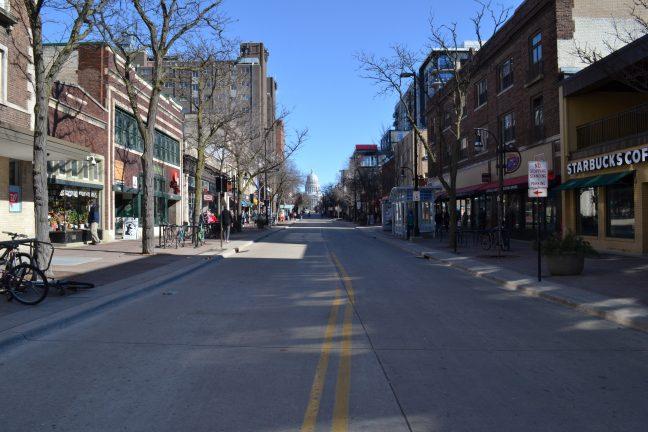Many students returned from spring break disappointed by the closure of Roast Public House and Glaze Teriyaki, favorite State Street restaurants. Though Glaze was technically a franchised establishment, its cool, calm atmosphere and tasty teriyaki made it stand out. Roast Public House, a restaurant known for its sandwiches and more, was also a major source of nightlife and had a bar which many students would socialize at on weekends.
Over the years, there seems to have been a pattern of local businesses like restaurants, boutiques and other small storefronts disappearing from State Street. According to Ald. Zach Wood, District 8, the main reason behind this is that State Street generally has extremely expensive rent and can be a tough place for local businesses to stay afloat.
According to a study, the average rent for downtown Madison is $24 per square foot, which is much higher than other local and national averages. Furthermore, rent downtown can reach as high as $60 per square foot, which is outrageous for a city as small as Madison.
There has already been a dramatic shift in the types of storefronts on State Street compared to 25 years prior. Bars and restaurants have increased from 26 to 62, while retail and service businesses have decreased from 97 to 70 as of 2014. Though this data is slightly old, its overall sentiment is still relevant today.
Along with these fluctuations, there is a continuation of local businesses being pushed out, and franchises and larger chains continuing to come in. When walking down State Street from Library Mall, students can easily access Starbucks, Einstein Bagels, Under Armour, Urban Outfitters, Chipotle, Francesca’s and more.
This is a disservice to the Madison community, which often prides itself on keeping local businesses alive. In the U.S. overall, the number of local retailers has decreased by 108,000 between 1997 and 2012. We must stop Madison from becoming another statistic.
Some may point to the Dane County Farmers’ Market as an example of supporting local farmers and small businesses. However, the outdoor farmers’ market on the square only takes place April through November, meaning many students who go home over the summer are not able to attend.
As a smaller city, Madison is often known for its “charm” and small-town feel. By erasing small businesses and continuing to bring in chains, however, Madison is becoming over-commercialized and degraded.
Many students, myself included, chose to attend the University of Wisconsin because of its beautiful campus with easy access to the city of Madison. While shopping is the second-most popular activity in Madison, the small number of local retail stores located near campus leaves it all too easy for students to turn to familiar favorites like Urban Outfitters and Under Armour.
Though the slow decline of locally-owned business is prevalent both nationally and locally, students see it most prevalently on our beloved State Street. Students cannot do anything to remedy the high rent costs on State Street — but we can patronize locally owned business near campus and across the city of Madison.
We’ve chosen to make Madison our home for four years — it is up to us to make our home the best it can be. Supporting local businesses is a large part of that.
Though the market is always changing, the decrease in local businesses should not be a part of it. Without the saving of small businesses, UW’s local allure will cease to exist, perhaps damaging its welcoming character.
Courtney Degen (cdegen@wisc.edu) is a sophomore majoring in political science and journalism.


